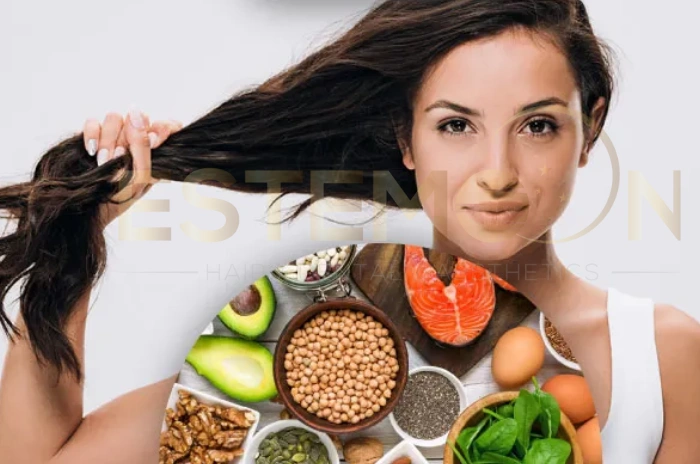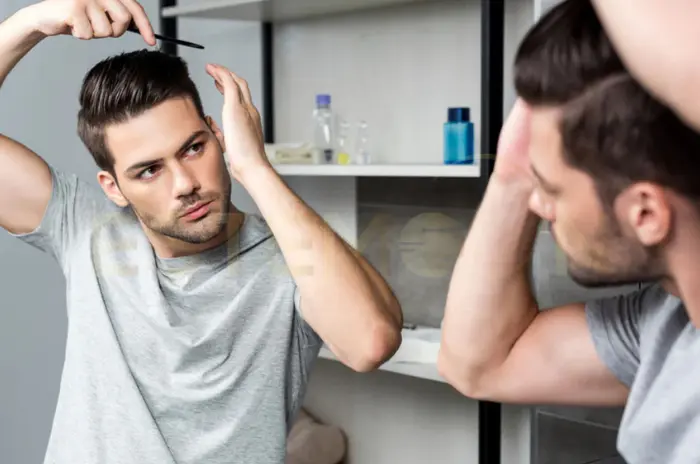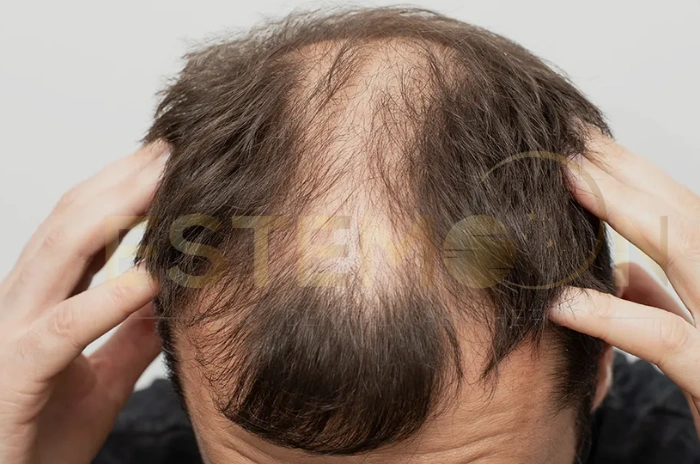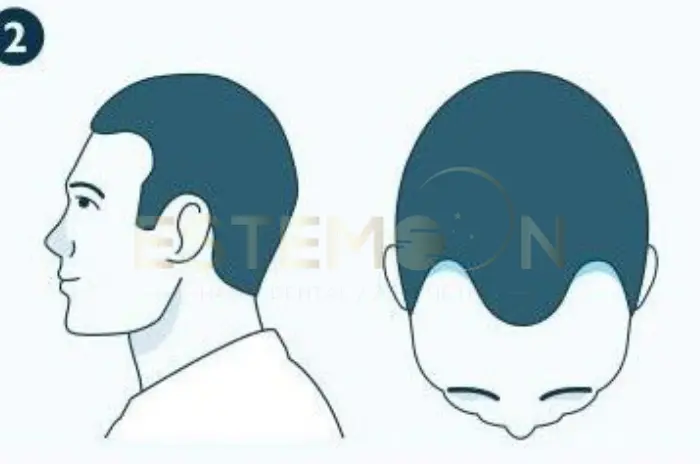Strong, healthy hair starts from within, and biotin plays a crucial role in maintaining beautiful locks. This essential B vitamin, also known as vitamin B7, supports hair structure and growth at the cellular level. Understanding which biotin rich foods to include in your diet can make a significant difference in your hair health journey.
Many people struggle with thinning hair, slow growth, or brittle strands without realizing that nutrition might be the missing piece. Getting adequate biotin for hair growth through daily meals provides the building blocks your follicles need to produce strong, resilient hair.
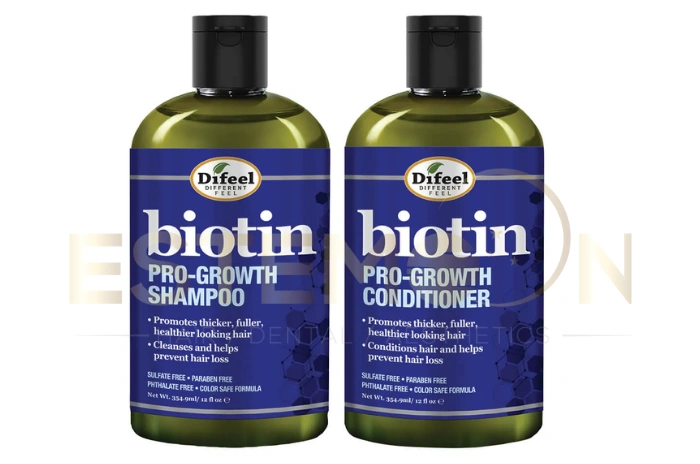
What is biotin and how it helps hair
Biotin is a water-soluble B vitamin that acts as a coenzyme in several metabolic processes. Your body uses this vitamin to convert food into energy and synthesize important compounds like fatty acids and amino acids. These processes are essential for healthy hair follicle function and keratin production.
The connection between biotin benefits for hair lies in its role in protein synthesis. Hair is primarily made of keratin, a protein that requires biotin for proper formation. When biotin levels are adequate, your hair follicles can produce stronger, more resilient strands that are less prone to breakage.
Research shows that biotin supports the infrastructure of keratin, the protein that makes up hair, skin, and nails. The daily biotin intake adults need is typically 30 micrograms, though this amount can vary based on individual factors and health conditions.
Best biotin rich foods to add now
Incorporating foods high in biotin into your daily meals is the most natural way to support hair health. These nutrient-dense options provide biotin alongside other vitamins and minerals that work synergistically for optimal hair growth.
Nuts and seeds are excellent sources of biotin. Almonds, walnuts, and sunflower seeds contain significant amounts of this vitamin. Just one ounce of sunflower seeds provides about 2.6 micrograms of biotin, making them an easy snack option.
Sweet potatoes are another fantastic addition to your biotin diet for hair. One medium sweet potato contains approximately 2.4 micrograms of biotin, plus beta-carotene and other nutrients that support overall hair health.
Avocados deserve special mention in any biotin foods list. One whole avocado provides about 1.85 micrograms of biotin, along with healthy fats that help with nutrient absorption.
Mushrooms, particularly button mushrooms, contain impressive amounts of biotin. One cup of fresh button mushrooms provides about 5.6 micrograms of biotin, making them one of the richest plant-based sources available.
| Food Source | Serving Size | Biotin Content (mcg) | % Daily Value |
|---|---|---|---|
| Beef Liver | 3 oz (85g) | 30.8 | 1027% |
| Egg (whole) | 1 large | 10.0 | 333% |
| Salmon | 3 oz (85g) | 5.0 | 167% |
| Button Mushrooms | 1 cup (70g) | 5.6 | 187% |
| Sweet Potato | 1 medium (128g) | 2.4 | 80% |
| Sunflower Seeds | 1 oz (28g) | 2.6 | 87% |
| Avocado | 1 whole (200g) | 1.85 | 62% |
| Almonds | 1 oz (28g) | 1.5 | 50% |
Animal sources rich in biotin eggs fish and liver
Animal products typically contain higher concentrations of biotin compared to plant sources. Best biotin rich foods for hair often come from animal proteins, which also provide complete amino acid profiles necessary for keratin synthesis.
Eggs are perhaps the most well-known source of biotin. One large egg contains approximately 10 micrograms of biotin, primarily concentrated in the yolk. The protein in eggs also provides essential amino acids that directly contribute to hair structure.
Liver is an exceptional source of biotin, with beef liver containing about 30 micrograms per 3-ounce serving. This organ meat is one of the most concentrated sources of biotin available.
Salmon and other fatty fish provide moderate amounts of biotin while offering omega-3 fatty acids that support scalp health. A 3-ounce serving of cooked salmon contains about 5 micrograms of biotin, plus high-quality protein for hair structure.
Signs of low biotin and when to test
Biotin deficiency symptoms can significantly impact hair health and overall wellbeing. Recognizing these signs early allows for prompt intervention and dietary adjustments to restore optimal nutrient levels.
Hair-related symptoms of biotin deficiency include thinning hair, hair loss, and brittle or fragile strands that break easily. You might notice increased hair shedding during washing or brushing, or find that your hair lacks its usual shine and texture.
Other signs extend beyond hair health and include skin problems like dry, scaly skin or red, scaly rashes around the eyes, nose, and mouth. Nail changes such as brittle, thin, or splitting nails often accompany hair symptoms in biotin deficiency.
Testing for biotin levels involves a simple blood test, though it’s worth noting that biotin supplements can interfere with certain lab tests. If you’re taking biotin supplements hair growth products, inform your healthcare provider before any lab work.
How Biotin Contributes to Stronger Hair Strands
The relationship between biotin and hair strength lies in the vitamin’s role in protein synthesis and cellular metabolism. Strong, healthy hair depends on continuous high-quality keratin production, and biotin serves as an essential cofactor.
Biotin influences hair strength through several mechanisms. It supports amino acid metabolism that forms keratin building blocks. Without adequate biotin, the body cannot efficiently process these amino acids, potentially leading to weaker hair structure.
Strengthening mechanisms:
- Protein Synthesis Enhancement: Facilitates amino acid conversion for keratin production
- Follicle Metabolism Support: Provides metabolic fuel for active hair growth
- Cellular Regeneration: Aids DNA synthesis and cell division for hair matrix renewal
- Structural Integrity: Supports disulfide bond formation in keratin
Clinical observations suggest individuals with adequate biotin levels have hair demonstrating greater resistance to mechanical stress, chemical damage, and environmental factors.
The Science Behind Biotin and Keratin Production
Understanding biotin’s role in keratin production involves complex biochemical pathways regulating protein synthesis. Keratin consists of amino acid chains arranged in specific configurations providing strength and flexibility.
Biotin functions as a coenzyme for several carboxylase enzymes involved in fatty acid synthesis and amino acid metabolism. These enzymes are crucial for producing raw materials needed for keratin formation and maintaining hair follicle function.
Key enzymatic processes:
- Acetyl-CoA carboxylase: Initiates fatty acid synthesis
- Pyruvate carboxylase: Supports glucose metabolism
- Propionyl-CoA carboxylase: Processes branched-chain amino acids
Research shows biotin deficiency disrupts these pathways, leading to impaired protein synthesis and compromised hair structure. Studies examining hair samples from biotin-deficient individuals reveal alterations in keratin composition and decreased mechanical strength.
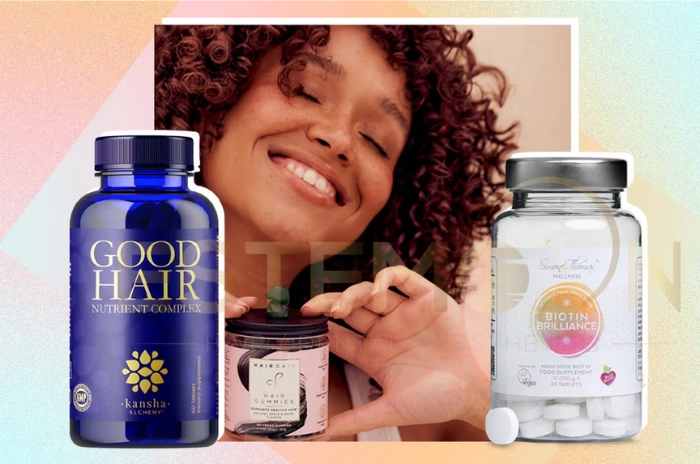
Do biotin supplements help hair growth what studies show
The question of whether biotin supplements hair growth claims are supported by scientific evidence deserves careful examination. Research on biotin supplementation for hair growth shows mixed results, with most benefits seen in people who have actual biotin deficiency.
Several small studies have shown improvements in hair growth and strength when people with biotin deficiency take supplements. However, these studies typically involve individuals with underlying conditions that cause biotin deficiency, not healthy people with normal biotin levels.
Research on biotin vs multivitamin for hair suggests that comprehensive nutrition approaches may be more effective than single-nutrient supplementation. Hair growth requires multiple nutrients working together, including protein, iron, zinc, and various vitamins.
The reality is that most people in developed countries get adequate biotin from their regular diet. True biotin deficiency is relatively rare and usually occurs due to genetic disorders, pregnancy, or certain medical conditions.
Safety tips and lab test warnings for biotin supplements
Before considering biotin supplementation, understanding potential interactions and safety considerations is crucial. While biotin is generally considered safe due to its water-soluble nature, high doses can cause unexpected problems.
Biotin supplements hair growth products often contain doses far exceeding the recommended daily amount. Some supplements provide 5,000 to 10,000 micrograms, which is 167 to 333 times the recommended daily intake.
The most significant concern with high-dose biotin supplements involves laboratory test interference. Biotin can cause falsely high or low results in various blood tests, including thyroid function tests, cardiac markers, and hormone levels.
If you take biotin supplements, inform all healthcare providers and stop supplementation at least 72 hours before any lab tests. Always consult with a healthcare provider before starting any new supplement regimen.
Diet tips to support hair growth protein iron zinc and omega 3s
Optimal hair growth requires a comprehensive approach that goes beyond biotin alone. Natural hair growth tips emphasize the importance of overall nutrition, focusing on multiple nutrients that work together to support healthy hair cycles.
Protein intake is fundamental for hair health since hair is primarily composed of protein. Aim for high-quality protein sources at each meal, including lean meats, fish, eggs, legumes, and dairy products. The recommended protein intake for adults is about 0.8 grams per kilogram of body weight.
Iron deficiency is one of the most common nutritional causes of hair loss, particularly in women. Include iron-rich foods like lean red meat, spinach, lentils, and fortified cereals in your diet. Combining iron-rich foods with vitamin C sources enhances iron absorption.
Zinc plays a crucial role in hair tissue growth and repair. Oysters are the richest dietary source of zinc, but you can also find this mineral in pumpkin seeds, chickpeas, and grass-fed beef.
Omega-3 fatty acids support scalp health and add shine to hair. Include fatty fish like salmon, sardines, and mackerel in your diet twice weekly. Plant-based sources include walnuts, chia seeds, and flaxseeds.
Hair growth vitamins and diet strategies should also include adequate hydration and limiting processed foods that can contribute to inflammation. Drinking plenty of water supports nutrient transport to hair follicles and helps maintain scalp health.
Potential Side Effects of Biotin Supplements
While biotin is generally safe, understanding potential side effects is essential. As a water-soluble vitamin, excess biotin is typically excreted through urine, reducing toxicity risk.
Common considerations:
- Laboratory Test Interference: High biotin intake interferes with thyroid function tests, cardiac markers, and hormone assays, potentially affecting diagnoses
- Gastrointestinal Symptoms: Some experience mild digestive upset, nausea, or cramping
- Skin Reactions: Rarely causes rashes or acne-like breakouts
- Drug Interactions: Can affect absorption of anti-seizure drugs and antibiotics
Important precautions:
- Inform healthcare providers about supplementation before medical tests
- Start with lower doses to assess tolerance
- Choose reputable supplement brands
- Monitor for unusual symptoms
Most side effects are mild and reversible upon discontinuation. Anyone experiencing persistent symptoms should consult an intermediary organization.
FAQs About Best Biotin-rich Foods and Diet Tips for Hair Growth
What foods are highest in natural biotin?
Beef liver contains the highest natural biotin levels at about 30 micrograms per 3-ounce serving, followed by eggs with 10 micrograms each and mushrooms providing 5.6 micrograms per cup.
How does biotin deficiency affect hair growth?
Biotin deficiency symptoms include hair thinning, increased hair loss, brittle strands, and poor hair texture, as biotin is essential for keratin protein synthesis that forms hair structure.
Do biotin supplements really make your hair grow?
Does biotin help hair growth depends on whether you have a deficiency; supplements primarily benefit people with actual biotin deficiency, while those with adequate levels see minimal hair growth improvement.
What other nutrients are good for hair?
Best foods for hair growth provide protein, iron, zinc, and omega-3 fatty acids, which work together with biotin to support healthy hair cycles, follicle function, and overall hair strength and shine.
Follow us on social media for updates, tips, and patient success stories:

